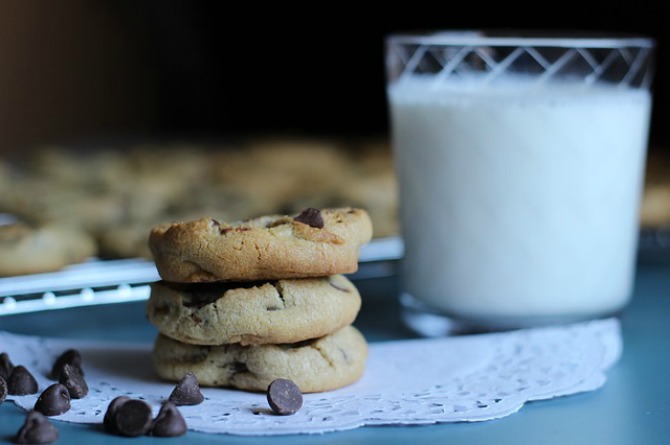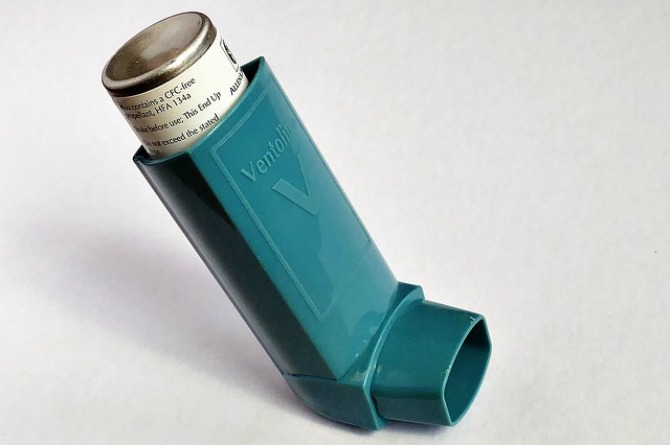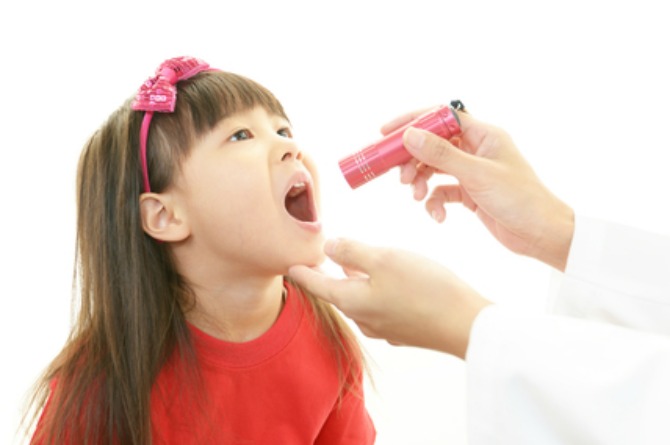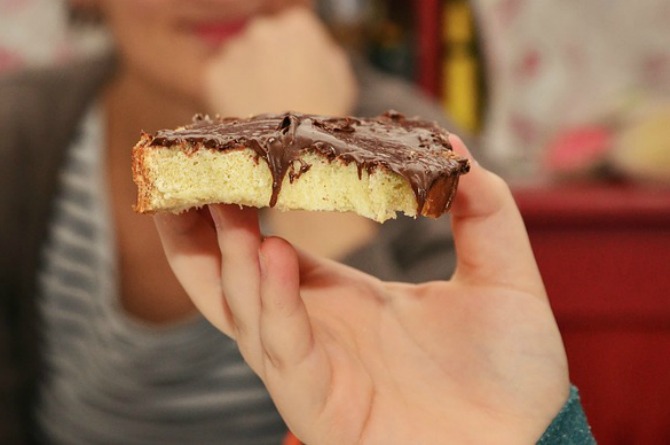
Too much dairy and sugar can cause constant runny noses, which is known as the “Milk and Cookie Disease” (MCD)
Most parents know it is inevitable that their little ones will fall sick quite regularly — either they are down with the dreaded flu or they’ve got a serious case of the sniffles due to a cold.
But if your child seems to always have a stuffy nose, or a persistent cough, or a constant runny nose, it might be something a little more serious than just a common cold and could possibly be the Milk and Cookie Disease.
Dr Julie Wei, M.D., an associate professor of otolaryngology-head and neck surgery at the University of Kansas Medical Center, often found that the young patients she treated for ear, nose and throat (ENT) ailments were on several medications but not showing any signs of improvement.
This caused her to suspect that a majority of these children she was seeing were possibly misdiagnosed and even over-medicated.
“In my practice, I was repeatedly seeing things wrong with kids. How can a human being that’s not physically sick have these symptoms every day?”, says Dr Wei.
Her theory is that her young patients’ diets which contain dairy and sugar, played a significant part in their ear, nose and throat symptoms, thus coining the phrase, “Milk and Cookie Disease” (MCD).
But what exactly is Milk and Cookie Disease and how do you know if your child really suffers from it?
Commonly misdiagnosed

Does your child have allergies, or is it really just the Milk and Cookie Disease?
Milk and Cookie Disease consists of ear, nose, and throat complaints that share the same sinus or allergy symptoms and other actual infections or illness, so it is not uncommon for children to be misdiagnosed as having sinus infections or allergies.
But through her observations and research, Dr Wei noticed the common link between her young patients were that their daily diets consisted of sugary drinks and milk throughout the day, right up until bedtime, which causes Gastroesophageal Reflux Disease (GERD).
This is when stomach acid backs up into the esophagus which can also contribute to heartburn, increased mucus production and sore throats — all of which are also the same symptoms of the common cold.
One of Dr Wei’s patients was a 10 year old girl who had experienced 27 bouts of croup over her young life and was on six medications but nothing seemed to be working.
But when it was discovered that she had milk and cookies as a bedtime snack every night, Dr Wei suggested her parents cut out all dairy and sugar in the evenings, after which the child went six months without any problems.
“A light bulb went off, and I began asking many of my patients’ parents what they were eating at night. It was astounding how often it was something containing either sugar or dairy, or often both”, she shares.
Signs to look out for
So how do you know if your child just has the common cold or could be the Milk and Cookie Disease instead? Here is a check list for you to go through.
Symptoms of Milk and Cookie Disease:
- Chronic stuffy nose
- Nasal congestion
- Chronic runny nose
- Persistent cough
- Recurring sinus infections
- Sore throat
- Recurrent croup
- Allergies
- Asthma
- Wheezing
If in doubt, be sure to always seek professional medical advice from your family doctor.
Go to the next page for tips on how to prevent and treat the Milk and Cookie Disease.

How can you prevent or treat your child’s Milk and Cookie Disease?
Prevention and treatment of Milk and Cookie Disease
A lot of children naturally like to consume sweet food and beverages, but experts say that too much sugar in your diet can affect your immunity and can even reduce the ability of white blood cells to kill germs by up to 40 percent.
Parents might also forget that there is sugar in their children’s drinks, such as flavoured milk, juice boxes, sodas and fortified “water”.
Fermenting sugar and processed liquid which remains in the stomach gets more rancid throughout the night and can come back up to cause symptoms that can mislead doctors into treating asthma, allergies, or other ailments.
A survey by the Singapore Health Promotion Board (HPB) shows that an unhealthy proportion of Singapore children and teenagers consume sugary drinks frequently and advises parents to limit their children’s sugary drinks consumption which will have a significant impact on Singapore’s public health in the long run.
As for dairy, even though some people feel that drinking milk right before bedtime will help you sleep better at night, Dr Wei warns families that drinking milk before bed is really bad for a child or anyone older than 12 months, because according to her, milk that has been sitting at 96.8 degrees Fahrenheit for a few hours, mixed with some stomach acid will probably curdle and form yoghurt-like clumps, which can reflux back up to the child’s throat.
“I have spent years observing that when kids stop consuming sugar and dairy in the evenings and before bed, many are completely ‘cured’ of their ENT (Ear Nose Throat) symptoms. Even if they are not cured, at least it makes it clear to someone like me what their real medical problems may be”, she says.

Should you cut out sugar and dairy completely from your child’s diet?
Make better choices
Although there is no need to cut out all sugar and dairy completely from your child’s diet to prevent or treat Milk and Cookie Disease, as they can have a healthy amount during the day, Dr Wei advises parents to teach their children to make better choices by modelling and encouraging good eating and drinking behavior.
You can take your kids to the supermarket and look at the food labels together to try and choose products which are lower in sugar, cook at home instead of eating out or buying take-out food, and stick to drinking plain water.
Ms Susie Rucker, a nutritional therapist at healthcare centre, Body With Soul, believes that water is the best choice for children, but says that fresh fruit juice with no added sugar is nutritionally superior to fruit juices in tetra packs — or Milo is also acceptable, as it contains three to four teaspoons of sugar, as compared with the seven or more teaspoons in a can of soft drink.
Parents who worry about their child’s calcium intake can include other calcium-rich foods such as green leafy vegetables, tofu, certain nuts (like almonds), some fruits (like oranges and figs), and many more.
Or you can also opt for other kinds of milk to help supplement their diet.
Alternatives to dairy milk:
- Soy milk
- Almond milk
- Rice milk
- Coconut milk
- Hemp milk
- Oat milk
- Quinoa milk
- Potato milk
- Sunflower milk
- 7-Grain milk (from oats, rice, wheat, barley, triticale, spelt and millet)
By adopting healthy eating habits from a young age, your child will be more likely to continue having a preference for them as an adult, so by helping your child make better food choices now, it will have a big impact on his health and quality of life in the future.
If you suspect that your child might have the Milk and Cookie Disease, you can try to eliminate his sugar and dairy intake at bedtime to see if the symptoms get better, and also consult a medical professional for more advice.
Republished with permission from: theAsianparent Singapore
READ: A rare disease compels this toddler to eat everything
Be sure to check out theAsianparent Community for more insightful stories, questions, and answers from parents and experts alike. If you have any insights, questions or comments regarding the topic, please share them in our Comment box below. Like us on Facebook and follow us on Google+ to stay up-to-date on the latest from theAsianparent.com Philippines!
 Money Tips
Money Tips Building a BakuNation
Building a BakuNation Becoming a Parent
Becoming a Parent Ages & Stages
Ages & Stages Parenting
Parenting Health & Wellness
Health & Wellness Education
Education Lifestyle Section
Lifestyle Section Become a VIP
Become a VIP Press Room
Press Room TAP Recommends
TAP Recommends Shopping
Shopping Community
Community Rewards
Rewards VIP Parents
VIP Parents
